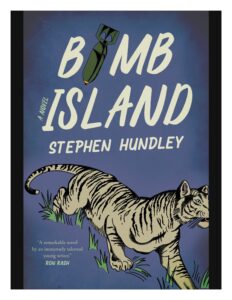By Justin Nash, Managing Editor
I certainly don’t speak for all editors when I say this, but it’s rare that a long poem catches my interest. Seeing a submitted poem that’s three, four, five pages long among a sea of others the usual half to three-quarters of a page—I feel often like a writer is throwing the gauntlet. There’s something about that length—not an epic but certainly not a short, pressurized lyric—that so often leaves me thinking, all right, let’s see if they pull this off.
And despite my admitted bias against the medium-long poem, Klum’s “History of the World” got me on board more immediately than any poem I read this period. Its initial lie, that “The balance beam was invented between 1047 and 1465,” tells us the common fixture of modern gymnastics, widely cited as being invented in Germany at the start of the 19th century, was first created somewhere in the mid to late medieval period. We can’t be sure, specifically. But what may, at first glance, be something to flag for fact-checking quickly becomes a hilarious manipulation. The second and third lines: “At the time, there were no children, only being // disappointed, which was invented in 1438”
Not always funny, exactly, but perpetually absurd, “History of the World” goes on with statements that cast doubt on truth and precision. The speaker’s mother was invented in 1203, their father in 1406. Their mother also invented the interstate and the color blue, and (of course) the balance beam. Their father “was invented quickly.” And among all these strange statements is the speaker describing “The sky stretched / skinny and red across the earth like a wound” or “the first instance of a girl sobbing / for no reason, shaking her one self inside.” There’s weirdness and tenderness and beautiful imagery, all layered together to highlight the complexity and intentional craftiness of a poem that a person could otherwise be too quick to write off as confused.
The truth is, this poem doesn’t always make perfect sense, and I’m not sure a poem should have to, and either way this particular poem clearly isn’t especially interesting in that anyway. Klum’s poem is three pages long and every bit of it is compelling. I think, probably, that preparation was invented before 1905, but I also think I believe wholeheartedly that fathers are often invented quickly. Ultimately, what “History of the World” has is something to say, and a uniquely interesting way of trying to say it. Whatever my own preferences for the shape something may take, that’s a ride I’ll always be along for.
Caitlyn Klum’s “History of the World” appears in our new Spring 2024 Issue 115.
Subscribe today to read more!
Justin Nash is a poet and visual artist from Delaware. A former intern of Copper Canyon Press and the Fine Arts Work Center, he currently serves as the Managing Editor for The Greensboro Review and is a senior reader in poetry for Cherry Tree.


